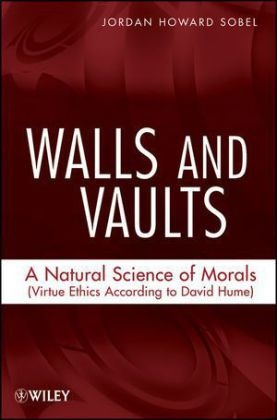Ulteriori informazioni
This unique book provides a modern discussion of David Hume's work in ethical theory and moral judgment Widely regarded as one of the most important philosophers in Western thinking, David Hume contributed significant works that profoundly influenced the study of ethics and morality.
Sommario
PREFACE.
I. Introduction.
1. The Business of Moral Philosophy and the Question, "Why Be Moral?".
2. Hume's Questions in Moral Philosophy and His Answers--in Brief.
3. Coming Chapters.
PART ONE: ANALYSIS AND METAPHYSICS--SEMANTICS, PRAGMATICS, AND LOGIC.
II. Virtue and Vice.
1. David Hume: Virtue Theorist.
2. What Kinds of Things Are Virtues and Vices According to Hume.
3. Hume's First Question in Order of Explanation: What Is It for Something to Be a Virtue?
4. The Nature or Defi nition of Virtue and Vice: Hume's Hypothesis in Brief.
5. Detailing Hume's Account.
6. The Nature of Virtue According to This Hypothesis.
7. Illusory Qualities.
8. "A Controversy Started of Late" (David Hume) and "The Moral Problem" (Michael Smith) of Late.
Appendix: Virtuous and Vicious Actions.
III. Moral Judgments.
1. They Are Not, Although They Could Be, What They Seem to Be.
2. The Good Sense of Sentences of Moral Judgments.
3. The Bad Sense of Moral Judgments: Their Bogus Propositional Conjuncts.
4. Diffi culties for Nonpropositional Theories of Moral Judgments.
5. The Function of Moral Language.
IV. Species Bias.
1. Humes Hypotheses Concerning Moral Distinctions and Judgments.
2. Evidence for This Theory.
3. The Human Species Bias of Morality.
4. Hume's Theory Predicts and Explains This Bias and Addresses Its Proper Measure.
5. The Moral Innocence of Plants and Animals.
6. Animal Moralities.
7. Bias Toward Us of Another Kind.
PART TWO: NORMATIVE THEORIES.
V. Virtues Agreeable and Useful.
1. A Utilitarian Theory of the Virtues.
2. Methodology.
3. Of What Primarily Is Hume's Delineation of Personal Merit a Theory?
4. Extending the Theory to Culture-Specifi c, Local, and Cult Virtues.
5. The Case for This Utilitarian Theory of the Virtues Is Very Strong.
6. Relations of Hume's Theory of the Virtues and His Theory of Virtue.
7. Intrinsic Logic of These Theories.
8. Tables of Virtues.
9. Piety.
10. Gratitude.
11. Strength of Mind.
12. Justice and Benevolence.
Appendix A: Contents of Volume II of Essays and Treatises, 1777, the "Advertisement" and "A Dialogue".
Appendix B: Essentials of Hume's Theory of Morals, But for Its Semantics.
VI. Hume's Theory of Right and Wrong Actions.
1. Attributing a Theory to Hume.
2. A Sometimes Actual-Rule, Sometimes Straight Act, Pure Utilitarian Principle of "Right" and "Wrong" for Hume.
3. Ancillary Accounts of 'Rules of Justice' and Extraordinary Cases.
4. Texts That Can Suggest Modifi cations.
5. Diffi culties for the Theory Attributed to Hume.
6. Looking Ahead.
Appendix A: Contractarian Considerations.
Appendix B: Infl uencing Motives of Right and Wrong.
PART THREE: AN EVERYWHERE RELEVANT DISTINCTION.
VII. That Species of Utility That Attends Justice.
1. The Utilities of Benevolence and Justice Compared.
2. Texts for Distinction.
3. Apparent Paradox Redux and Texts Featuring Variously Moderating Clauses.
4. Comparisons of Several Ideas of the Utilities of Acts of Justice that Are Constitutive of Useful Systems or Schemes.
5. Justice Utility Defined...

